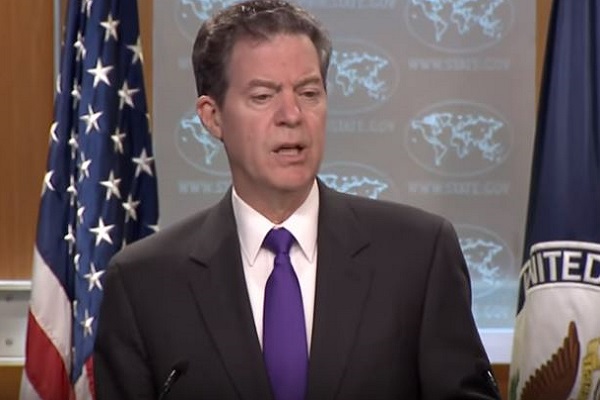
U.S. Religious Freedom Ambassador Sam Brownback Wants Investigation into China’s Internment Camps
- By Elisa Meyer --
- 13 Mar 2019 --

Most of the camps are to be found in Xinjiang province.
Sam Brownback, the United States ambassador-at-large for international religious freedom, described China’s internment of approximately one million Muslims as a kind of “horrific situation.”[/tweetit] He asked for a complete independent investigation into such detentions and release of those who are being held. He pointed out Beijing had shown not a single iota of action when it came to assuage concerns from the United States and other countries over the detention of multiple Muslim minority groups like the Kazakhs and the Uighurs.
U.S. Religious Freedom Ambassador Sam Brownback Wants Investigation into China’s Internment Camps[/tweetthis]
Brownback, during the last day of his three-day extended visit to Taiwan, met Lee Ching-yu, wife of Lee Ming-che, the Taiwanese pro-democracy activist presently incarcerated in a Chinese prison. He has been charged with the crime of subverting the power of the state. The physical condition of Ming-che has considerably deteriorated from the time he was thrown into the jail confines in 2017. According to the U.S. envoy, the meeting with Ming-che’s family was done with the intention to highlight his weak health and ask the Chinese administration to release the activist.
Beijing, for its part, has responded with anger. The Chinese Government has issued a strident protest over Brownback’s comments criticizing the policies instituted against Tibetan Buddhist and Muslim minorities. The U.S. envoy alleged the Chinese Government is at war with faith -a battle it can never win. The office of the foreign ministry in Hong Kong said that the speech which Brownback gave on March 8 “slandered” the religious policies set up by China. It noted the formal dissatisfaction with the U.S. envoy’s statement was lodged with the U.S. Consulate in Hong Kong. According to Beijing, the Constitution of the People’s Republic of China protects all religious freedoms and critics must stop their slander related to the country’s policy towards religion and must stop utilizing religious issues to interfere in Chinese internal matters.
Finally a voice about Western China. At first quiet almost muted. Then will grow to the chant of millions. We all know what those horrible camps are all about. https://t.co/YWf8jjE6wz
— SaigonStê (@SaigonSte) March 12, 2019
As per U.S. officials and United Nations experts, China presently holds about one million Uighurs, mostly Muslims and members of other Chinese ethnic groups in what Beijing calls political education camps. A majority of such camps are in Xinjiang province. The United States, along with several foreign governments have criticized such a crackdown. Beijing differs on this aspect. It says the camps are vocational centers built and operated to rid the region from the shadow of extremism.


















